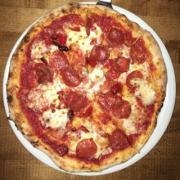I can't say I disagree with you. I think the best thing someone can have is a combat mindset and the awareness that comes with it. The only time I have even considered drawing while in Montana I was able to deescalate with flashlight from 20 yards because I saw him coming. But I did recently hear Tom Givens say on ballistic radio that a speedy draw is important. so idk.




 Reply With Quote
Reply With Quote




